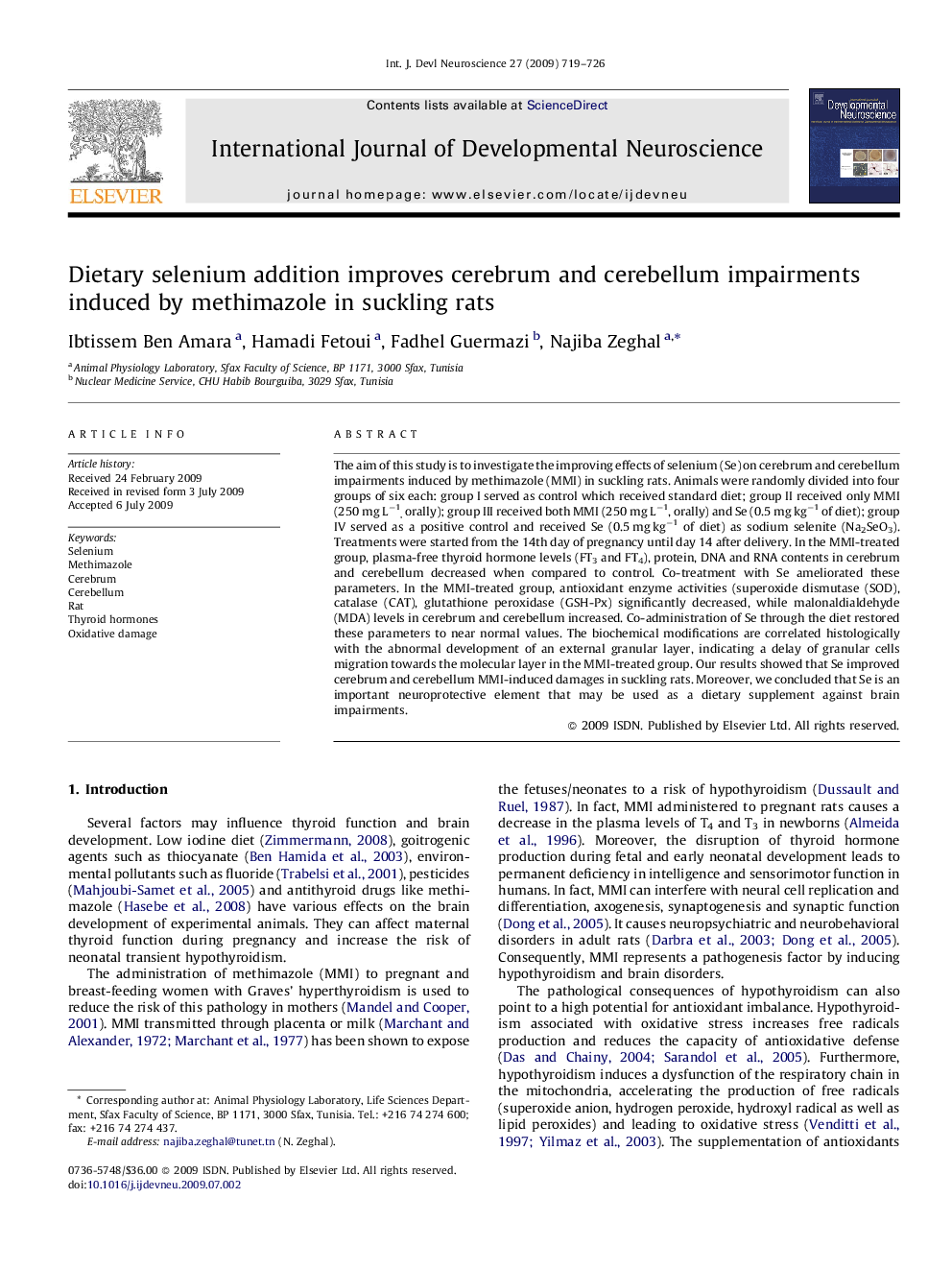| Article ID | Journal | Published Year | Pages | File Type |
|---|---|---|---|---|
| 2786256 | International Journal of Developmental Neuroscience | 2009 | 8 Pages |
The aim of this study is to investigate the improving effects of selenium (Se) on cerebrum and cerebellum impairments induced by methimazole (MMI) in suckling rats. Animals were randomly divided into four groups of six each: group I served as control which received standard diet; group II received only MMI (250 mg L−1, orally); group III received both MMI (250 mg L−1, orally) and Se (0.5 mg kg−1 of diet); group IV served as a positive control and received Se (0.5 mg kg−1 of diet) as sodium selenite (Na2SeO3). Treatments were started from the 14th day of pregnancy until day 14 after delivery. In the MMI-treated group, plasma-free thyroid hormone levels (FT3 and FT4), protein, DNA and RNA contents in cerebrum and cerebellum decreased when compared to control. Co-treatment with Se ameliorated these parameters. In the MMI-treated group, antioxidant enzyme activities (superoxide dismutase (SOD), catalase (CAT), glutathione peroxidase (GSH-Px) significantly decreased, while malonaldialdehyde (MDA) levels in cerebrum and cerebellum increased. Co-administration of Se through the diet restored these parameters to near normal values. The biochemical modifications are correlated histologically with the abnormal development of an external granular layer, indicating a delay of granular cells migration towards the molecular layer in the MMI-treated group. Our results showed that Se improved cerebrum and cerebellum MMI-induced damages in suckling rats. Moreover, we concluded that Se is an important neuroprotective element that may be used as a dietary supplement against brain impairments.
